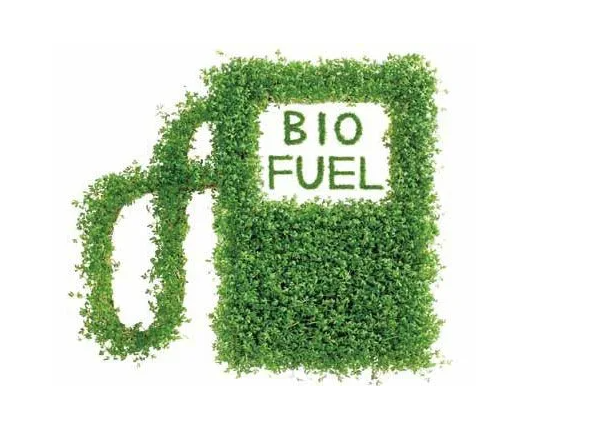The country’s energy security is at risk, given its heavy reliance on imported coal, gas, and oil. To top it all, factors like the continuous depreciation of the rupee, large current account deficit, and dwindling foreign exchange reserves are potential threats that could aggravate the energy security situation in the years to come.
Given the prevailing circumstances, biofuel — a renewable energy source — emerges as a promising alternative to reduce our dependence on imported fuels, thereby improving the country’s energy security. Biofuel is produced mostly in the form of ethanol, biodiesel, and biogas.
Amongst them, ethanol stands out because of its large-scale production across several countries. It is derived from energy crops, predominantly maize (corn), sugarcane, rice, barley, and sweet sorghum, as well as other biomass materials such as straw, grass, and wood.
Biofuel has already captured the attention of policymakers in many countries as a viable solution to improve energy security, reduce greenhouse gas emissions to mitigate climate change and decrease import bills. Across the globe, several countries, including the US, France, Germany, Spain, Canada, Argentina, China, Brazil, and India, collectively produce over 300 million litres of ethanol per day, with production increasing every passing year.
In recent years, India has strategically focused on ethanol production for blending with petrol. The country is committed to enhancing its current blending ratio from 10 per cent to 20pc by 2030, aiming to decrease energy costs, fulfil climate pledges, and tackle surplus production of sugarcane, maize, broken rice, and other food grains. To achieve this goal, India is setting up modern ethanol plants across the country to convert crops and biomass/waste into ethanol.
However, every country possesses a unique context and a distinct agricultural profile. Given Pakistan’s prevailing food security situation and its burgeoning population, the crucial question is how and to what extent ethanol is a viable option for the country.
If we examine the agricultural statistics over the last decade, it becomes evident that the cotton crop area in the country has decreased from 2.88m hectares in 2012–13 to 1.94m hectares in 2021–22. The data highlights that the cotton area has largely been replaced by sugarcane, maize, and rice crops, whose area has increased by 11.6pc, 56pc, and 53pc, respectively, during the mentioned time span.
Such significant crop switching in favour of sugarcane, maize, and rice is primarily driven by their higher financial return, lower crop yield and price risks, and relatively simpler agricultural practices they entail. In addition to the issue of substandard cotton seed, the adverse effects of climate change have played havoc with cotton production.
The government is making concerted efforts to revive the cotton crop. However, this presents a considerable challenge, particularly when considering the climate change effects, available crop choices for farmers, and their risk-averse approach. Therefore, the country should be well positioned and better prepared to capitalise now on maize, sugarcane, and rice crops.
Without any government subsidy or maize-specific interventions, maize production has increased from 4.92m tonnes in FY16 to 9.53m tonnes in FY22. Given the current crop yields and market prices, maize remains competitive in the international market, and therefore, Pakistan is exporting significant quantities of maize. This export surplus is likely to increase further in the coming years.
Globally, maize is used as one of the main feedstocks for ethanol production. China, for instance, relies on maize for 70pc of its ethanol production. Despite having large domestic production, China remains the world’s leading maize importer.
In Pakistan, despite suboptimal crop yields, sugarcane production has exceeded 88.6m tonnes (2021-22). Even with a conservative 9pc sugar (sucrose) recovery rate — far lower than the world’s average — the country is producing surplus sugar.
Quite astonishingly, around 20 ethanol manufacturing plants — vertically integrated sugar mills as well as standalone ethanol units — achieved an export of 600,000 tonnes (770m litres) of ethanol, amounting to $545m, in FY22 alone (State Bank of Pakistan Annual Report 2021-2022). Ethanol is primarily made from molasses, a by-product of the sugar-making process, though sugarcane juice can also serve as the primary source through direct fermentation.
Given that Pakistan has successfully maintained ethanol export momentum without any direct subsidies, it would be hard to argue that establishing ethanol distilleries is not a lucrative investment.
For a country like Pakistan, high volatility in global oil prices represents a major risk for the economy that alters the entire dynamics of the country’s business, agriculture, and manufacturing. Thus, reducing dependency on imported fuel to the maximum extent possible should be a national priority. To this end, indigenous energy crops like maize and sugarcane can offer a very promising opportunity, if their production and recovery rates are increased.
In 2009, Pakistan State Oil started marketing a cost-effective E10 blend (indigenous-ethanol blended petrol) in a few major cities but discontinued it after the pilot phase. It is a matter of great concern that despite its success in other countries and a substantial increase in global production, Pakistan has been unable to pursue it. The reality is that Pakistan is influenced by powerful interest groups, who adroitly navigate policymakers and stakeholders in policies where their hefty profits and interests are at stake.
Despite the limited natural resources, Pakistan’s agriculture sector possesses the potential to address both food security and, to some extent, energy security challenges. The key requirement is to enhance crop yields — bridging the gap between potential yield and current yield — but, nonetheless, a conducive policy environment and essential infrastructure are a must to achieve this.
Khalid Wattoo is a farmer and a development professional Rahema Hasan is a political economist and graduate of the London School of Economics and Political Science
